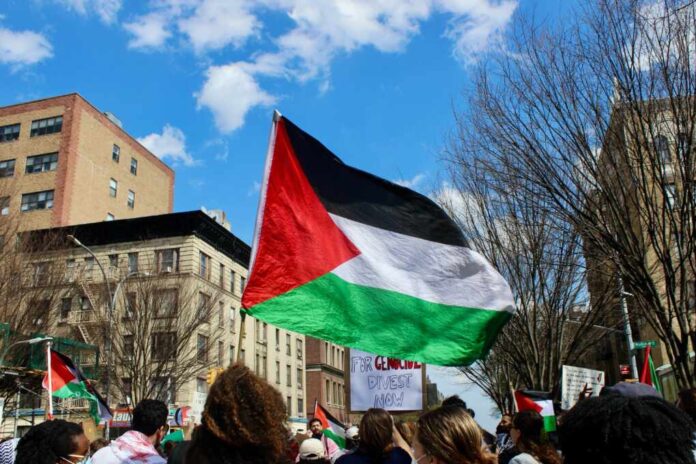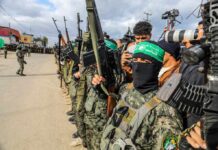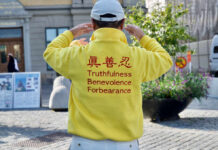
When the UK government votes to brand Palestine Action as a terrorist organization, it threatens to trample on civil liberties that could set a dangerous precedent.
At a Glance
- MPs voted 385 to 26 in favor of proscribing Palestine Action as a terrorist organization.
- The order amends the Terrorism Act 2000 and awaits signing by Home Secretary Yvette Cooper.
- Support for Palestine Action can lead to 14 years in prison under the new law.
- The order adds white supremacist groups and includes Palestine Action in its proscription.
- The proscription has sparked widespread criticism regarding civil liberties and freedom of expression.
Legislative Action and National Security
The UK’s legislative move to classify Palestine Action as a terrorist group follows MPs voting 385 to 26 to proscribe the activist group under the Terrorism Act 2000. This amendment broadens the definition of terrorism to include activism, setting a precedent that could stifle future dissent. Home Secretary Yvette Cooper is set to approve the order, which raises alarms amid fears of government overreach transgressing into citizens’ rights to assemble and express political opinions.
The UK has officially labeled Palestine Action as a terrorist group. The United States should do the same. They are known as “Unity of Fields” currently in the United States. https://t.co/TTK8VPH9VC pic.twitter.com/nDNKlLsjCl
— Angela Van Der Pluym (@anjewla90) July 2, 2025
Under this order, supporting Palestine Action could now constitute a criminal offense. Individuals face up to 14 years in prison for their involvement or support, a severe penalty that critics argue unfairly targets non-violent protests. The order aims to prevent extremism; yet, lumping together activists with groups associated with genuine threats of violence dilutes the very essence of a free society, where voicing discontent is not just tolerated but protected.
Watch a report: The BLUEPRINT to Defeating Peekaboo/Pressure Fighter Style
Protests and Criticisms
The vote and potential ramifications of this order have sparked a blazing debate. Critics from groups like Human Rights Watch labeled this move by the UK as “a grave abuse of state power and a terrifying escalation in this government’s crusade to curtail protest rights.” The analogy presented by Labour MP Zarah Sultana succinctly captures this sentiment: “To equate a spray can of paint with a suicide bomb isn’t just absurd, it is grotesque. It is a deliberate distortion of the law to chill dissent, criminalise solidarity, and suppress the truth.”
The Palestine Action supporters’ determination remains unshaken, with many protesters outside Westminster defiantly stating they would continue to show support. This resistance underscores a heightened fear that the new classification will deter political activity and potentially obstruct the truth from surfacing. Legal action is underway to challenge and perhaps block the order, though the odds of overturning such a legislative move are slim at best.
Implications for Civil Liberties
The argument against this proscription isn’t merely academic but fundamental to maintaining democratic integrity. Equating peaceful activism with terrorism jeopardizes the moral fabric that allows societies to hear out varying voices along the political spectrum. Home Secretary Yvette Cooper, among others, justified the classification by emphasizing zero-tolerance for violence in protests, yet in the pursuit of safety, the balance must hold at not jeopardizing core civil liberties.
By classifying Palestine Action alongside violent neo-Nazi militias, the UK government sends a profoundly troubling message about its perception of protest. Dissent is the lifeblood of democracy, a right intrinsically bound to the fight for justice and truth. This vote, with its subsequent legal battles, will undoubtedly shape the future discourse about where political activism ends and terrorism begins.

























